"[Rzym] przewyższa wszystko, czego doświadczyłem..." - pierwszy pobyt Percy'ego Shelleya w Rzymie/ "[Rome] exceeds anything I have experienced" - Percy Shelley in Rome fot the first time
„Wrażenie, jakie wywarł na mnie [Rzym] przewyższa wszystko, czego doświadczyłem podczas moich dotychczasowych podróży"- wyznał Percy Shelley w swoim pierwszym liście adresowanym z Wiecznego Miasta. Angielski poeta przyjechał do Rzymu 20 listopada 1818 roku. Towarzyszyła mu Mary Shelley, ich syn William (zwany pieszczotliwie Willmouse) oraz Claire Clairmont. Podróż z Bolonii trwała 10 dni i prowadziła m. in. przez Rimini, Fogliano i Terni. Zatrzymali się przy via del Sediari, w pobliżu Piazza Navona.
"The impression of it [Rome] exceeds anything I have experienced in my travels." - confessed Percy Shelley in the first letter send from the Eternal City. He arrived in Rome on November 20, 1818. Shelley was accompanied by his wife Mary Shelley, their son William (affectionately called Willmouse) and Claire Clairmont. The trip from Bologna lasted 10 days and led through Rimini, Fogliano and Terni. They stayed at via del Sediari No. 8, close to the Piazza Navona.
Był to ich pierwszy pobyt w Rzymie, który trwał
zaledwie tydzień. W tym czasie udało im się zobaczyć
najważniejsze zabytki - Koloseum, Forum, Watykan oraz Cmentarz
Protestancki, na którym za niespełna cztery lata Shelley zostanie
pochowany.
It was their first stay in Rome, which
lasted only a week. During this time, they were able to see the most
important monuments - the Colosseum, Forum, Vatican City and
Protestant Cemetery, where Shelley will be buried in less than four
years.
Shelley był szczególnie zachwycony tym jak natura powoli i konsekwentnie opanowywała ruiny dawnego cesarstwa. W trakcie tego pobytu napisał nigdy niedokończony szkic opowiadania zatytułowanego „Koloseum”. Poniżej fragment listu poety poświęcony amfiteatrowi Flawiuszów:
"Koloseum nie jest podobne do żadnego dzieła ludzkich rąk, jakie dotąd widziałem. Jego wysokość i obwód są ogromne, a łuki zbudowane z masywnych kamieni są ułożone jeden nad drugim (...) Czas zmienił wygląd amfiteatru w krajobraz skalistych wzgórz porośniętych dziką oliwką, mirtem i drzewem figowym, przez które wiodą niewielkie ścieżki wijące się wśród zrujnowanych schodów i niezmierzonych galerii; wędrując przez te labirynty masz zapewniony cień od drzewek, a pnącza dzikich kwiatów kwitną pod twoimi stopami. Arena jest pokryta trawą, przez którą przebijają fragmenty rozbitych gruzów. Pozostała jednak niewielka część zewnętrznego obwodu; jest niezwykle jasne i piękne, a doskonałość jego konstrukcji, ozdobionej szeregami korynckich pilastrów, wspierających monumentalny gzyms, sprawia, że wydaje się mniejsze niż jest w rzeczywistości. Wnętrze jest zrujnowane. Ledwie mogę sobie wyobrazić jak wzniośle i imponująco musiało to wyglądać, gdy było inkrustowane doryckim marmurem i ozdobione kolumnami z egipskiego granitu. Nie jest zadaszone, ale w tutejszym klimacie pod koniec listopada niebo było czyste i świeciło słońce, gdy odwiedzaliśmy go dzień po dniu. ”
Shelley was particularly delighted with how nature slowly took control over the ruins of the former empire. During his stay, he wrote an unfinished draft of a short story entitled "The Coliseum". Below is an excerpt from Shelley's letter about the Flavian Amphitheater:
"The Coliseum is unlike any work of human hands I ever saw before. It is of enormous height and circuit, and arches built of massy stones are piled on one another, (...) It has been changed by time into the image of an amphitheatre of rocky hills overgrown by the wild olive, the myrtle, and the fig-tree, and threaded by little paths which wind among its ruined stairs and immeasurable galleries: the copse-wood overshadows you as you wander through its labyrinths, and the wild weeds of this climate of flowers bloom under your feet. The arena is covered with grass, and pierces, like the skirts of a natural plain, the chasms of the broken arches around. But a small part of the exterior circumference remains; it is exquisitely light and beautiful, and the effect of the perfection of its architecture, adorned with ranges of Corinthian pilasters, supporting a bold cornice, is such as to diminish the effect of its greatness. The interior is all ruin. I can scarcely believe that when encrusted with Dorian marble and ornamented by columns of Egyptian granite, its effied could have been so sublime and so impressive as in its present state. It is open to the sky, and it was the clear and sunny weather of the end of November in this climate when we visited it, day after day."
"W pobliżu znajduje się Łuk Konstantyna, a raczej Łuk Trajana; (...) Jest perfekcyjny i wyjątkowo piękny. Forum jest równiną pośród Rzymu, pustynią pełną stosów kamieni i dołów, i chociaż znajduje się tak blisko ludzkich siedzib to jest najbardziej opuszczonym miejscem, jakie można sobie wyobrazić. Wokół niego znajdują się ruiny świątyń, resztki rozbitych kolumn, (...) Świątynie Jowisza, Zgody, Pokoju, Słońca, Księżyca i Westy znajdują się w niewielkiej odległości od tego miejsca. Można zobaczyć resztki tego, co wielki naród poświęcił kiedyś abstrakcjom umysłu! Rzym jest jakby miastem umarłych, a raczej tych, którzy nie mogą umrzeć; przetrwa te mizerne pokolenia, które go zamieszkują i przemijają a które go uświęciły na wieczność"
"Near it is the Arch of Constantine, or rather the Arch of Trajan; (...) It is exquisitely beautiful and perfect. The Forum is a plain in the midst of Rome, a kind of desert full of heaps of stones and pits, and though so near the habitations of men, is the most desolate place you can conceive. The ruins of temples stand in and around it, (...). The temples of Jupiter, and Concord, and Peace, and the Sun, and the Moon, and Vesta, are all within a short distance of this spot. Behold the wrecks of what a great nation once dedicated to the abstractions of the mind! Rome is a city, as it were, of the dead, or rather of those who cannot die, and who survive the puny generations which inhabit and pass over the spot which they have made sacred to eternity."
"Miejsce pochówku Anglików to zielony stok w pobliżu murów, pod piramidalnym grobowcem Cestiusa, jak sądzę, najpiękniejszy i najbardziej wzniosły cmentarz, jaki kiedykolwiek widziałem. Aby zobaczyć słońce świecące na jasnej trawie - gdy tam byliśmy była świeża, zroszona jesienną rosą - i usłyszeć szept wiatru wśród liści drzew, które porosły grobowiec Cestiusa, i odgłos stąpania po ciepłej od słońca ziemi, i aby czcić groby - głównie kobiet i młodych ludzi, którzy zostali tam pochowani - człowiek mógłby, gdyby miał umrzeć, pragnąć tu zasnąć, oni sprawiają wrażenie śpiących. Taki jest ludzki umysł, a więc ludzie pragną pustki i zapomnienia."
"The English burying place is a green slope near the walls, under the pyramidal tomb of Cestius, and is, I think, the most beautiful and solemn cemetery I ever beheld. To see the sun shining on its bright grass, fresh when we first visited it, with the autumnal dews, and hear the whispering of the wind among the leaves of the trees which have overgrown the tomb of Cestius, and the soil which is stirring in the sun-warm earth, and to mark the tombs, mostly of women and young people who were buried there, one might, if one were to die, desire the sleep they seem to sleep. Such is the human mind, and so it peoples with its wishes vacancy and oblivion."
"Niewiele Ci powiedziałem o Rzymie; ale zastrzegam Panteon, św. Piotra, Watykan i Rafaela na mój powrót. (...) Zatrzymaliśmy się tam tylko tydzień, zamierzając wrócić pod koniec lutego, by poświęcić dwa lub trzy miesiące zgłębianiu tych niewyczerpanych źródeł kontemplacji” - napisał w liście do przyjaciela Peacocka.
Shelley wyjechał z Rzymu 27 listopada i udał się w kierunku Neapolu. Dzień później podążyły za nim Mary i Claire. Opuścił Rzym z jedną tylko myślą - tą samą, która towarzyszy wielu stąd wyjeżdżającym - wrócić tu jak najszybciej.
"We stayed there only a week, intending to return at the end of February, and devote two or three months to its mines of inexhaustible contemplation. (...) I have told you little about Rome; but I reserve the Pantheon, and St. Peter's, and the Vatican, and Raphael, for my return." - he wrote to his friend Peacock.
Shelley left Rome on November 27 and headed towards Naples. A day later Mary and Claire followed him. He left Rome with one thought only - to come back here as soon as possible.



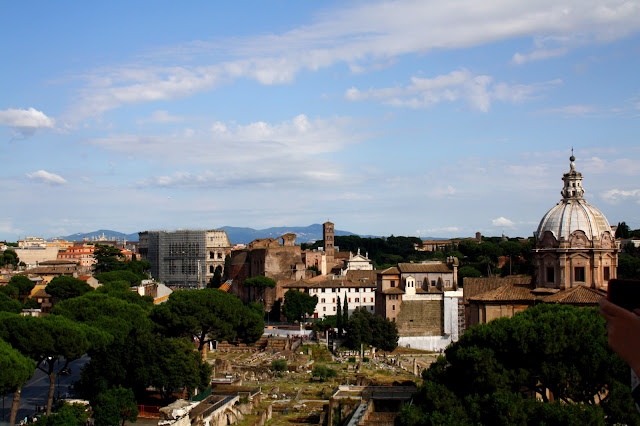

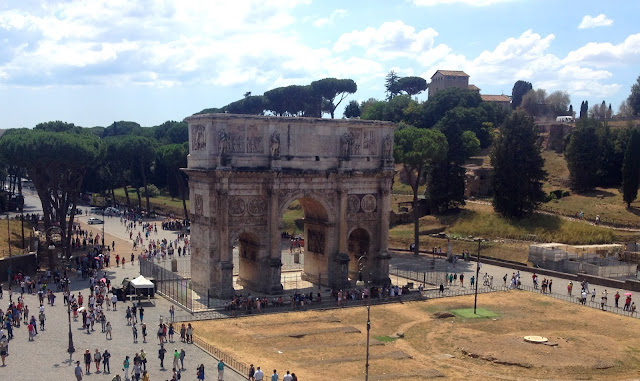

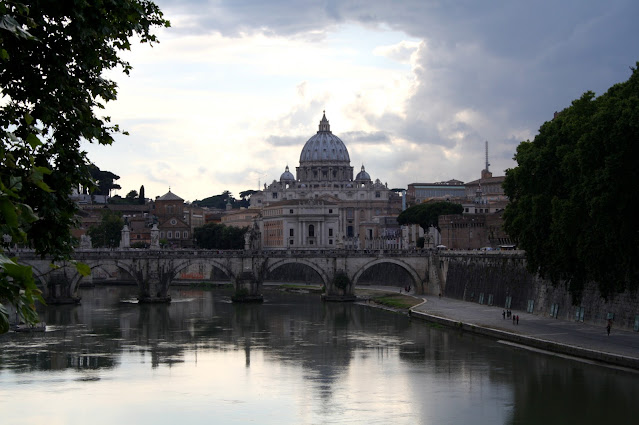
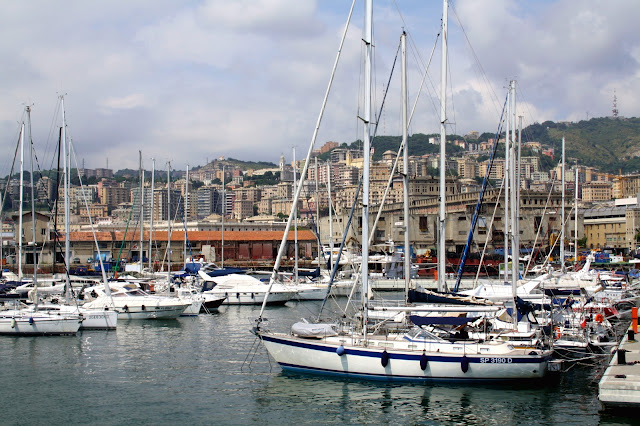

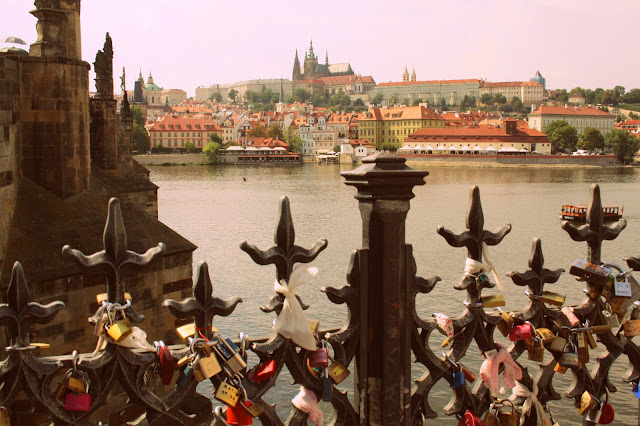
Komentarze
Prześlij komentarz